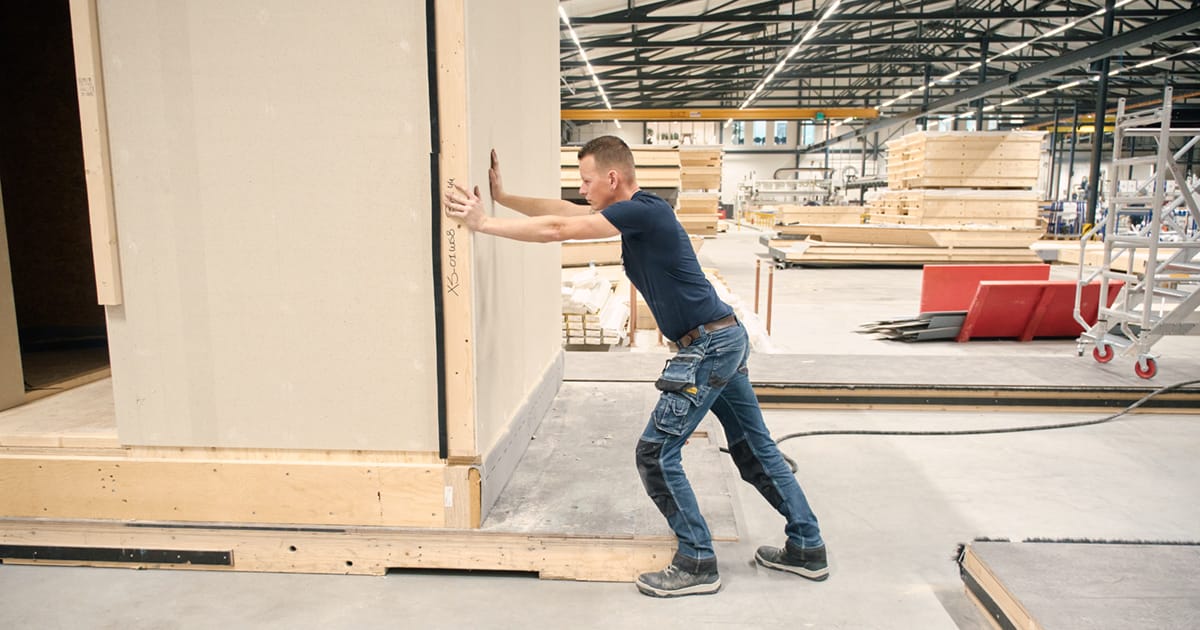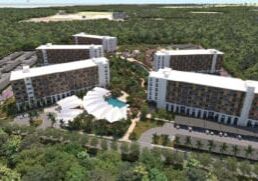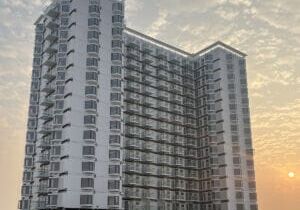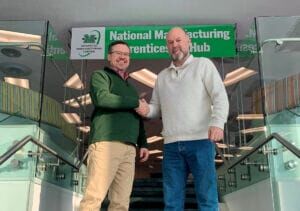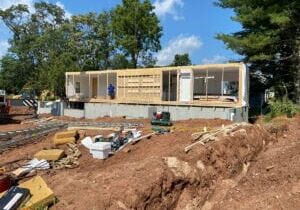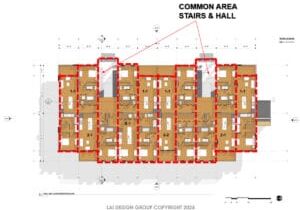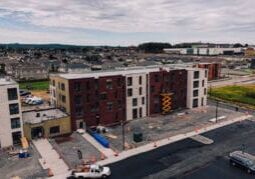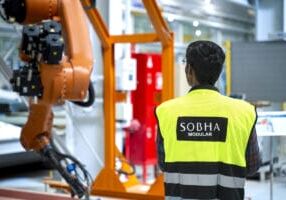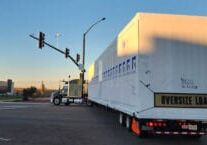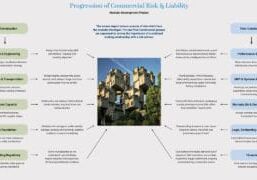Safe Modular Construction with Aerofilm Air Caster Transport
Heijmans has established a groundbreaking factory in Heerenveen, the Netherlands for modular construction, where sustainability and innovation go hand in hand. With a unique combination of 2D and 3D building elements, Heijmans has developed a solution that enables carbon-neutral construction while meeting the highest standards in cost-efficiency, safety, and scalability. A key factor in this success was the collaboration with Aerofilm Systems, which introduced air caster technology to move heavy modules effortlessly, flexibly, and safely.
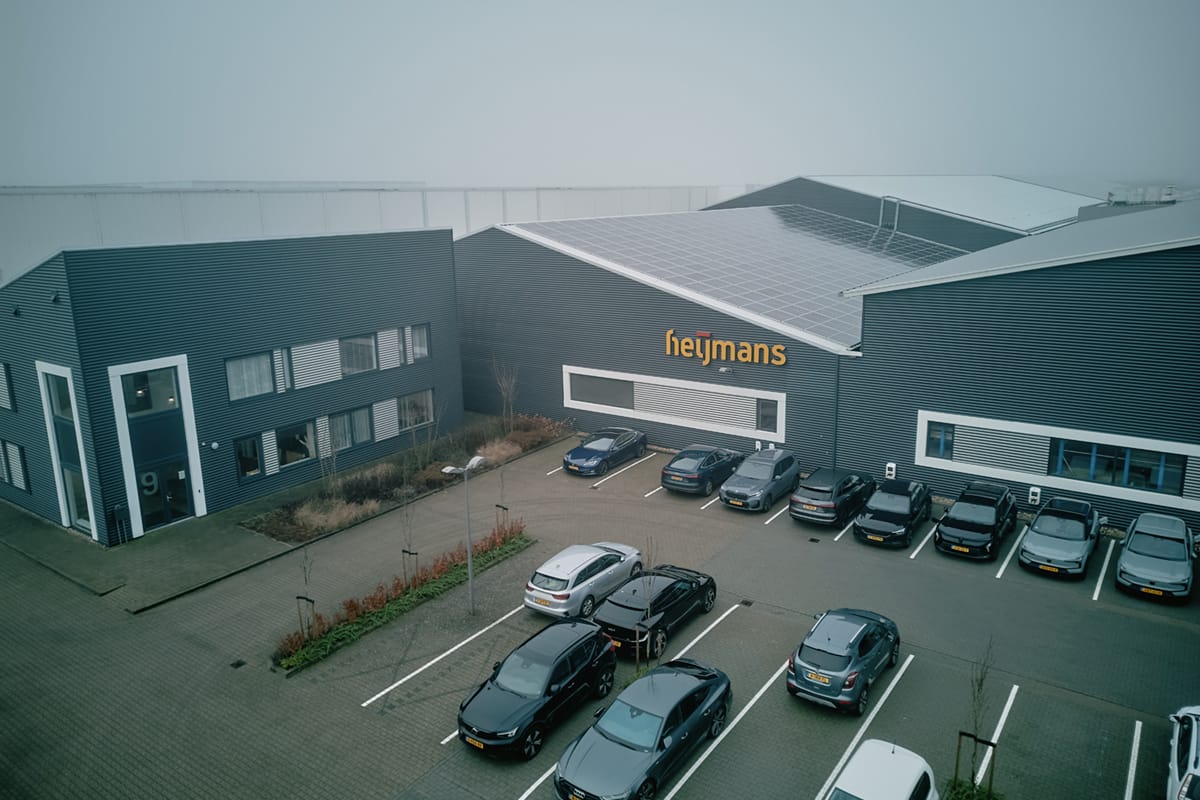
Challenges
Heijmans has established a new factory in Heerenveen, the Netherlands dedicated entirely to modular construction with a unique blend of 2D and 3D building elements. This ambitious project posed a complex challenge: developing a product and production process that is both sustainable and cost-effective. Simultaneously, the factory needed to be flexible, efficient, and, above all, safe for housing production.
To optimize internal logistics, Heijmans partnered with Aerofilm Systems. By leveraging their innovative air caster technology, the heavy 3D modules—each weighing up to 5 metric tons—can effortlessly float on a thin layer of air. This provides a flexible, simple, and reliable solution for internal module transportation.
The safe and efficient system minimizes physical labor and allows precise positioning of the modules, contributing to a streamlined production process. Sustainability was a key consideration, both in material choices and process optimization.
The challenge was to achieve high output—one home per day—without compromising quality or environmental impact. The need for such rapid production was crucial to meet the growing demand for affordable housing while supporting the construction sector’s sustainability goals. It was a first in the Netherlands: designing an entirely new internal logistic process from scratch, requiring an innovative yet thoughtful approach focused on reproducibility and future growth.
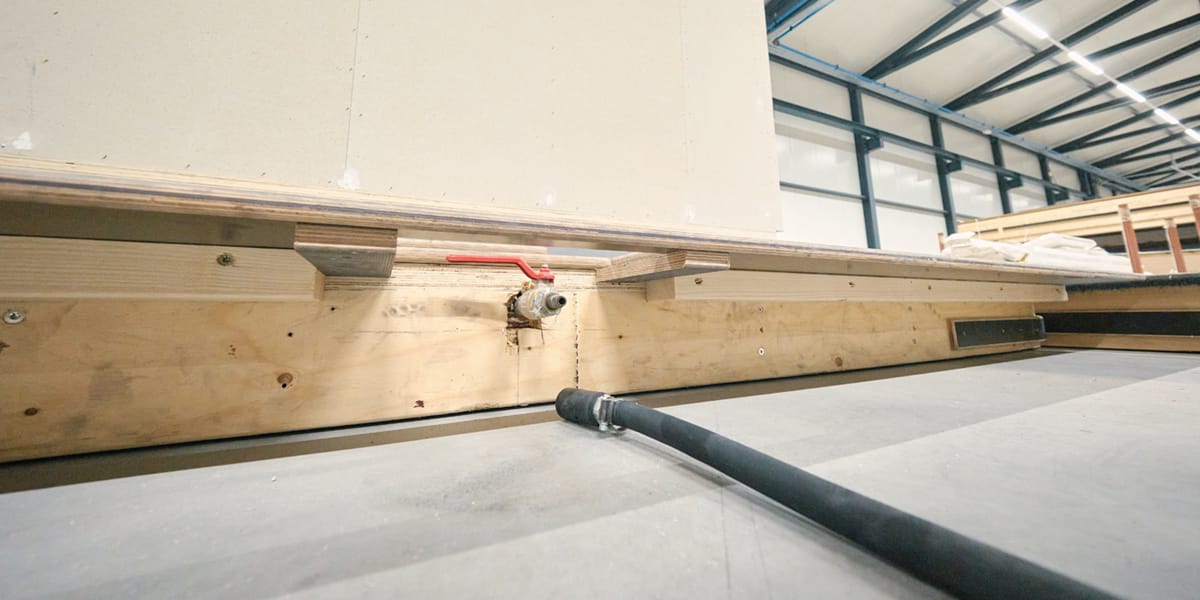
Solution
In collaboration with Aerofilm Systems, Heijmans developed innovative skids using air caster technology for moving modules easily and safely. These pallets are equipped with an auto-flow system, making operation extremely simple. The only required actions is connecting an air hose and opening a ball valve. With just one setting, the pallet effortlessly floats, whether empty or fully loaded. Within seconds, the system is operational and ready for use.
The pallets are fitted with six air casters, collectively providing ample capacity to carry the required 5 metric-tons load. Thanks to the air caster technology, the system is not only safe and reliable but also highly cost-effective and flexible. The modular design allows for the quick and easy movement of heavy modules, perfectly aligning with the need for an efficient and streamlined production environment.
The ease of use and reliability of this technology makes it a popular choice among workers. Operators require minimal physical effort to move heavy modules with precision, significantly improving safety and ergonomics. Additionally, the system’s flexibility allows it to be easily adjusted to changing production requirements or future scaling.
By combining Aerofilm’s expertise in air casters with Heijmans’ deep understanding of the construction process, a true team effort has resulted in solutions that perfectly match the builders’ needs while contributing to broader sustainability goals. This synergy has led to an innovative system that enhances productivity and significantly reduces CO2 emissions.
Results
With these results, Heijmans has set a new standard for modular construction in the Netherlands. The combination of sustainability, safety, and ease of use ensures an efficient process that seamlessly aligns with Heijmans’ vision. Thanks to the collaboration with Aerofilm Systems, an innovative solution has been realized that not only optimizes the current production process but also provides room for future growth and further sustainability.
Additionally, the project has demonstrated how innovation can contribute to solving societal challenges such as the housing crisis and climate change. By combining modular and carbon-neutral construction, Heijmans delivers a scalable and affordable solution for creating comfortable and sustainable homes. This makes a significant impact not only in the construction sector but also in shaping a better future for the Netherlands.
Together, Heijmans and Aerofilm have proven that innovative technologies and strategic partnerships are key to successfully tackling complex challenges. The Heerenveen project serves as a prime example of how sustainability and efficiency can lead to structural improvements in the construction industry.
The Aerofilm air caster system helped Heijmans:
- Achieve an efficient production process. Thanks to the air caster system, Heijmans can safely and accurately move heavy modules within seconds, contributing to a daily output of one home.
- Ensure safety and ease of use. Operators experience minimal physical strain and can operate the system easily, regardless of their experience level.
- Promote sustainability and cost savings. The innovative solution supports a carbon-neutral process and lowers overall costs by optimizing time and material usage.
- Enhance flexibility and scalability. The skids provide flexibility to align production with takt times and are prepared for future production growth.
More from Modular Advantage
How Stack Modular Is Using AI to De-Risk Mid- to High-Rise Modular Construction
Artificial intelligence is no longer a future concept in modular construction—it is already reshaping how complex buildings are evaluated, designed, and delivered.
Gearing Up for the 2026 World of Modular
The Modular Building Institute (MBI) is bringing its global World of Modular (WOM) conference and tradeshow back to Las Vegas in April, and with it comes some of the industry’s best opportunities for networking, business development, and education.
New High-Rise Modular Apartment in Abu Dhabi Points Toward the Future of Multifamily Construction
Eagle Hills International Properties chose the BROAD Holon Building for a 16-story market rate apartment building in Zayed City, a central business district of Abu Dhabi. The project highlights the potential of the Holon system of volumetric modular construction to accelerate housing delivery.
MBI Announces First Ever Industry Apprenticeship Program in Collaboration with Marshall Advanced Manufacturing Center
MBI recently agreed to partner with Marshall Advanced Manufacturing Center (MAMC) to provide bona fide USDOL-approved apprenticeship programs for the industry.
AoRa Development Aims for New York’s First Triple Net Zero Building Using Modular Methods
More cities are providing funding for newer infrastructure projects as long as they meet sustainability requirements. This is how modular can fit the bill, thanks to its lower waste production.
Developers and Designers: Lessons Learned with Modular Design
Modular construction is attractive to many developers because sitework and module construction can occur simultaneously, shortening the schedule and reducing additional costs.
UTILE: Putting Modular Building on a Fast Track
In Quebec, UTILE is taking the lead in creating affordable modular buildings to help decrease the student housing shortage. During the process, the company discovered what it takes to make the transition to modular building a success.
Sobha Modular Teaches Developers How to Think Like Manufacturers
With its 2.7 million square foot factory in UAE, Sobha Modular is bringing both its high-end bathroom pods to high-end residences to Dubai while developing modular projects for the U.S. and Australia.
RoadMasters: Why Early Transport Planning is Make-or-Break in Modular Construction
In modular construction, transportation is often called the “missing link.” While it rarely stops a project outright, poor planning can trigger costly delays, rerouting, and budget overruns.
Navigating Risk in Commercial Real Estate and Modular Construction: Insights from a 44-Year Industry Veteran
Modular projects involve manufacturing, transportation, and on-site assembly. Developers must understand exactly what they are responsible for versus what they subcontract. Risk advisors should research the developer’s contractors, subcontractors, and design-build consultants—especially the modular manufacturer.

